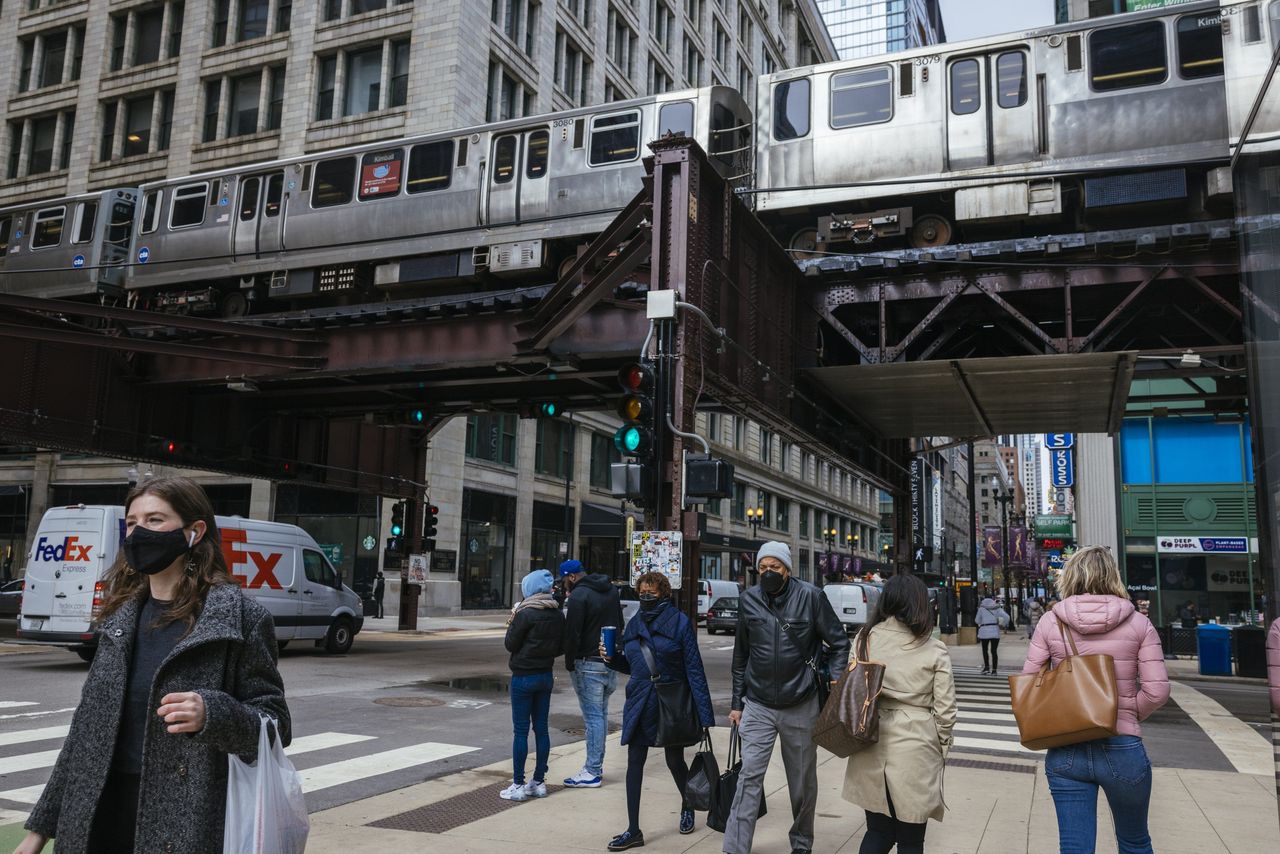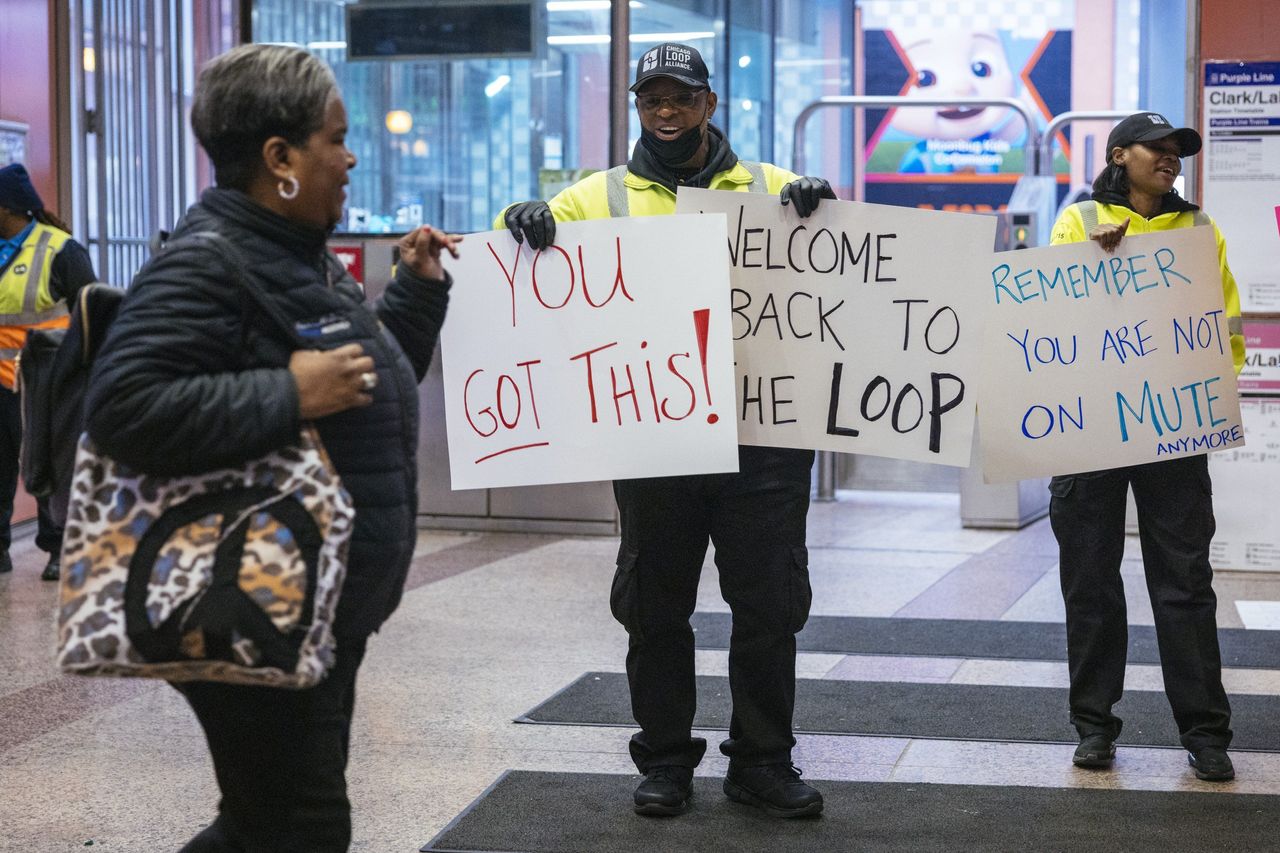The Hottest Work Day Of The Week Is Now…Wednesday?
Hybrid workweeks let people decide which days to go to the office. The one in the middle is their top choice.
The pandemic has turned a lot of things upside down. That includes the week.
For years, Mondays sort of haunted the weekend, a looming day when the fun would be over and it was time to get serious again.
But as employers start asking their work-from-home people to come in part of the time, a different day is taking centre stage: It’s Wednesday.
At lunchtime on a recent Wednesday in Midtown Manhattan—a place that still bears plenty of pandemic vacancy—most tables were full at Oceana, Del Frisco’s, Boucherie, Bobby Van’s Steakhouse and other fancy eateries.
Groups who showed up at the Mediterranean restaurant Limani had to wait. “From now on they should make reservations,” advised George Saites, Limani’s manager.
Commuter rail lines in cities like Boston and San Francisco found Wednesday typically the busiest weekday in April. The same is true of hotel occupancy in many big cities, a sign salespeople know that is the day they’re likeliest to find contacts in the office, said Jan Freitag, director of hospitality analytics at CoStar Group Inc.

An average of 46% of U.S. office workers went to work on Wednesdays in March, said Kastle Systems, a security firm that monitors access-card swipes. That trounced Monday’s meagre 35%.
Wednesday used to be rather ho-hum as days go—too far into the week to start anything ambitious, but not close enough to the weekend to start pining for time off.
Nobody talks about the Wednesday-morning blues. There’s no Wednesday the 13th film series. No one says TGIW. Consider its distinctly unglamorous nickname: Hump Day.
So what has made Wednesday Office Day instead?
In a world of hybrid work, many companies that allow employees to split time between the office and their home let them to choose which days to come in. But many firms would like it to be about three.
“Some [companies] are saying Monday, Tuesday, Wednesday. Some are saying Tuesday, Wednesday, Thursday. Some are saying Wednesday, Thursday, Friday,” said Brian Kropp, chief of human-resources research for advisory firm Gartner.
There’s one common day in these scenarios: “All the natural rhythms of work say that Wednesdays are going to be the day when we’re together,” Mr. Kropp said.
Office landlords and downtown business organizations fretful about the slow pace of tenants’ return are trying to pick up on the Wednesday mojo by holding special events. On a Wednesday morning earlier this month, members of the Chicago Group Alliance greeted returning workers at the Thompson Center office building, cheering marathon-style.

Dozens of office buildings managed by JLL, a real estate services firm, hold themed events every Wednesday. There are Woof Wednesdays for dog owners in a San Francisco building that allows tenants to bring pets. In other cities, there are Wellness Wednesdays with fitness classes on roofs and plazas.
Last week, Wednesday fortuitously fell on May 4, which has been adopted by Star Wars fans for “May the Fourth Be With You” celebrations. Two of JLL’s Washington, D.C., buildings treated tenants to Yoda Soda, Wookiee Cookies and Jabba Juice.
In Florida, Breakwater Hospitality Group is planning to add Whiskey Wednesday and Wine Wednesday events at its restaurants in Fort Lauderdale and Miami’s Brickell business district to capitalize on the trend.
The critical mass of workers on Wednesday can be self-reinforcing, some managers suggest. Employees say they like office socialization, so it makes sense to go in on the day you think the most other people will.
“Wednesday is definitely the anchor,” said Rebecca Tsallis, one of the architects of a hybrid work strategy for North America at Ford Motor Co.

Office workers are still adapting to Wednesday’s new prominence. People working from home on Mondays and Tuesdays no longer feel the “Sunday scaries” as Monday approaches, said Cailin Rogers, principal of Alta Via, a Chicago marketing firm.
Some are even beginning to express frustration about Wednesdays because there isn’t enough room, in the case of businesses that shed space during the pandemic in anticipation of a hybrid work strategy, said Mr. Kropp of Gartner.
The result is a little Wednesday-morning quarterbacking. Mr. Kropp said workers are saying, “Gosh, you tell me to come in and it’s crowded. And then you say because it’s crowded, we’re not supposed to be in a conference room all together….So, why am I coming in again?”
If the rate of return to the office keeps rising, some employers might start encouraging workers to come in on more Mondays and Fridays, according to workplace consultants. Otherwise, employers that have unloaded a lot of space might risk running out of room on Wednesdays.
Allie Brush won’t cause them any problem. Ms. Brush, the client-relations director for a New York architecture and engineering firm, got used to working alone during the pandemic and prefers it for the quiet. She goes to her office on Mondays and Tuesdays, when the place is less crowded.
“I avoid the chaos of Wednesday,” she said.
Reprinted by permission of The Wall Street Journal, Copyright 2021 Dow Jones & Company. Inc. All Rights Reserved Worldwide. Original date of publication: May 11, 2022.
 Copyright 2020, Dow Jones & Company, Inc. All Rights Reserved Worldwide. LEARN MORE
Copyright 2020, Dow Jones & Company, Inc. All Rights Reserved Worldwide. LEARN MORE
This stylish family home combines a classic palette and finishes with a flexible floorplan
Just 55 minutes from Sydney, make this your creative getaway located in the majestic Hawkesbury region.
As Paris makes its final preparations for the Olympic games, its residents are busy with their own—packing their suitcases, confirming their reservations, and getting out of town.
Worried about the hordes of crowds and overall chaos the Olympics could bring, Parisians are fleeing the city in droves and inundating resort cities around the country. Hotels and holiday rentals in some of France’s most popular vacation destinations—from the French Riviera in the south to the beaches of Normandy in the north—say they are expecting massive crowds this year in advance of the Olympics. The games will run from July 26-Aug. 1.
“It’s already a major holiday season for us, and beyond that, we have the Olympics,” says Stéphane Personeni, general manager of the Lily of the Valley hotel in Saint Tropez. “People began booking early this year.”
Personeni’s hotel typically has no issues filling its rooms each summer—by May of each year, the luxury hotel typically finds itself completely booked out for the months of July and August. But this year, the 53-room hotel began filling up for summer reservations in February.
“We told our regular guests that everything—hotels, apartments, villas—are going to be hard to find this summer,” Personeni says. His neighbours around Saint Tropez say they’re similarly booked up.
As of March, the online marketplace Gens de Confiance (“Trusted People”), saw a 50% increase in reservations from Parisians seeking vacation rentals outside the capital during the Olympics.
Already, August is a popular vacation time for the French. With a minimum of five weeks of vacation mandated by law, many decide to take the entire month off, renting out villas in beachside destinations for longer periods.
But beyond the typical August travel, the Olympics are having a real impact, says Bertille Marchal, a spokesperson for Gens de Confiance.
“We’ve seen nearly three times more reservations for the dates of the Olympics than the following two weeks,” Marchal says. “The increase is definitely linked to the Olympic Games.”

Getty Images
According to the site, the most sought-out vacation destinations are Morbihan and Loire-Atlantique, a seaside region in the northwest; le Var, a coastal area within the southeast of France along the Côte d’Azur; and the island of Corsica in the Mediterranean.
Meanwhile, the Olympics haven’t necessarily been a boon to foreign tourism in the country. Many tourists who might have otherwise come to France are avoiding it this year in favour of other European capitals. In Paris, demand for stays at high-end hotels has collapsed, with bookings down 50% in July compared to last year, according to UMIH Prestige, which represents hotels charging at least €800 ($865) a night for rooms.
Earlier this year, high-end restaurants and concierges said the Olympics might even be an opportunity to score a hard-get-seat at the city’s fine dining.
In the Occitanie region in southwest France, the overall number of reservations this summer hasn’t changed much from last year, says Vincent Gare, president of the regional tourism committee there.
“But looking further at the numbers, we do see an increase in the clientele coming from the Paris region,” Gare told Le Figaro, noting that the increase in reservations has fallen directly on the dates of the Olympic games.
Michel Barré, a retiree living in Paris’s Le Marais neighbourhood, is one of those opting for the beach rather than the opening ceremony. In January, he booked a stay in Normandy for two weeks.
“Even though it’s a major European capital, Paris is still a small city—it’s a massive effort to host all of these events,” Barré says. “The Olympics are going to be a mess.”
More than anything, he just wants some calm after an event-filled summer in Paris, which just before the Olympics experienced the drama of a snap election called by Macron.
“It’s been a hectic summer here,” he says.

AFP via Getty Images
Parisians—Barré included—feel that the city, by over-catering to its tourists, is driving out many residents.
Parts of the Seine—usually one of the most popular summertime hangout spots —have been closed off for weeks as the city installs bleachers and Olympics signage. In certain neighbourhoods, residents will need to scan a QR code with police to access their own apartments. And from the Olympics to Sept. 8, Paris is nearly doubling the price of transit tickets from €2.15 to €4 per ride.
The city’s clear willingness to capitalise on its tourists has motivated some residents to do the same. In March, the number of active Airbnb listings in Paris reached an all-time high as hosts rushed to list their apartments. Listings grew 40% from the same time last year, according to the company.
With their regular clients taking off, Parisian restaurants and merchants are complaining that business is down.
“Are there any Parisians left in Paris?” Alaine Fontaine, president of the restaurant industry association, told the radio station Franceinfo on Sunday. “For the last three weeks, there haven’t been any here.”
Still, for all the talk of those leaving, there are plenty who have decided to stick around.
Jay Swanson, an American expat and YouTuber, can’t imagine leaving during the Olympics—he secured his tickets to see ping pong and volleyball last year. He’s also less concerned about the crowds and road closures than others, having just put together a series of videos explaining how to navigate Paris during the games.
“It’s been 100 years since the Games came to Paris; when else will we get a chance to host the world like this?” Swanson says. “So many Parisians are leaving and tourism is down, so not only will it be quiet but the only people left will be here for a party.”
This stylish family home combines a classic palette and finishes with a flexible floorplan
Just 55 minutes from Sydney, make this your creative getaway located in the majestic Hawkesbury region.






















